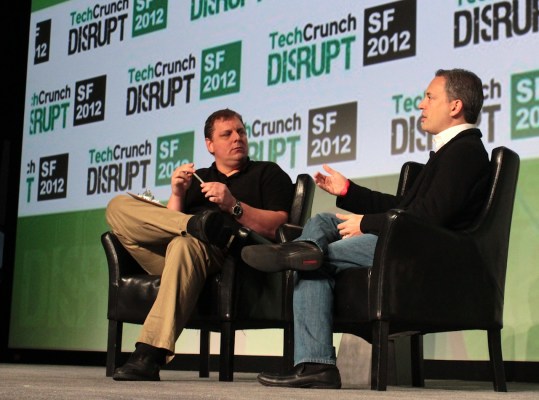Fewer than three months after Microsoft bought Yammer for $1.2 billion, founder David Sacks says that it is preparing to announce the first signs of integration “soon.” Speaking on the sidelines of the TechCrunch Disrupt conference, Sacks said that product announcements are being prepared for Yammer’s cloud-based enterprise social networking platform to appear in several Microsoft products. These could include products like Lync, Sharepoint and Office 365 — although Sacks would not directly confirm which one.
The integration of once-startup Yammer into the Leviathan that is Microsoft was one of the many fitting topics of conversation between Sacks and Mike Arrington on stage today. Sacks explained why he thought that tech startups needed to find new opportunities away from traditional technology.
(Easy to say when you’ve just sold your company for $1.2 billion to Microsoft, you might think.)
Essentially, Sacks thinks that technology is too mature for entrepreneurs to be trying to upset the big boys. Don’t try to disrupt the redwoods, he told an audience at TechCrunch Disrupt in San Francisco; instead, go to the edge of the forest to find something new to upset. Be an Uber, rather than trying to be the next Facebook.
“I think that we have a more mature ecosystem and that constrains the kind of opportunities we have,” he said. One area where this is especially obvious is television. “We all know TV is going to be disrupted, but there are no opportunities for startups too close to the wheelhouse of the big media Internet companies.” Sacks believes that TV disruption is more likely to occur because of Microsoft (Xbox), Apple, Google, and Amazon — not Comcast, HBO, Time Warner, and Sony.
Although Travis Kalanick recounted the trials and tribulations of breaking into the establishment of hired-car services, Sacks had this to say: “I’d rather compete with those guys rather than Facebook or Google.”
But he also admitted that this may change in the years ahead, even if it is not apparent now: “Disruption happens in waves,” he noted.
